Augusta, ME Pollen and Allergy Report for Summer 2023
Pollen Allergy Trends in Augusta, ME
When is pollen lowest in Augusta, ME?

February
Lowest month total PPM
Avg. PPM
When is pollen highest in Augusta, ME?

April
Highest month total PPM
Avg. PPM
How does pollen in Augusta, ME compare to Maine?
Augusta has a equal average PPM than the state of Maine.
Augusta yearly avg PPM:
Maine yearly avg PPM:
How does pollen in Augusta, ME compare to the USA?
Augusta has a lower average PPM than the USA.
Augusta yearly avg PPM:
USA yearly avg PPM:
Is pollen worse this year in Augusta, ME?
Spring 2023 was worse than spring 2022.
Spring 2023 PPM:
Spring 2022 PPM:
Average PPM in Augusta, ME
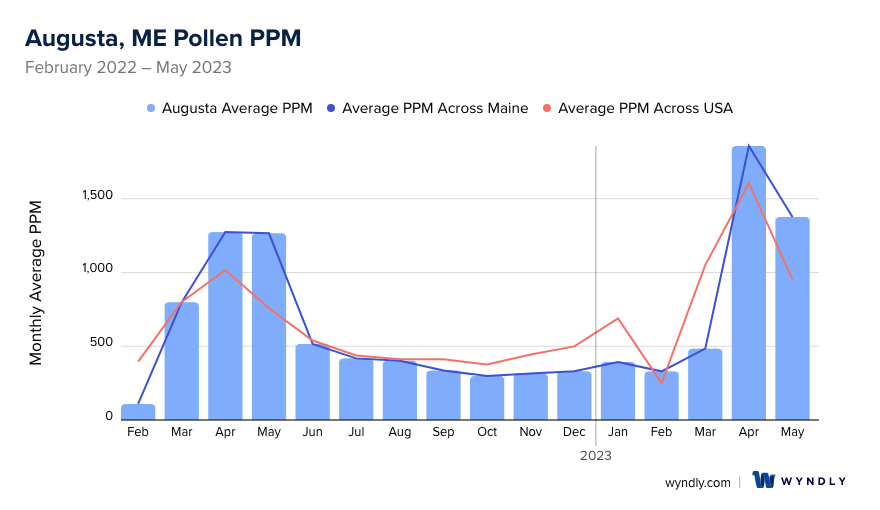

Augusta, ME Pollen and Allergy Breakdown by Month
Grass
When is grass pollen highest in Augusta, ME?
April has the highest grass pollen in Augusta, ME with an average PPM of
When is grass pollen lowest in Augusta, ME?
December has the lowest grass pollen in Augusta, ME with an average PPM of
Tree
When is tree pollen highest in Augusta, ME?
April has the highest tree pollen in Augusta, ME with an average PPM of
When is tree pollen lowest in Augusta, ME?
October has the lowest tree pollen in Augusta, ME with an average PPM of
Weed
When is weed pollen highest in Augusta, ME?
April has the highest weed pollen in Augusta, ME with an average PPM of
When is weed pollen lowest in Augusta, ME?
February has the lowest weed pollen in Augusta, ME with an average PPM of
Augusta, ME Pollen Monthly Breakdown by Pollen Type
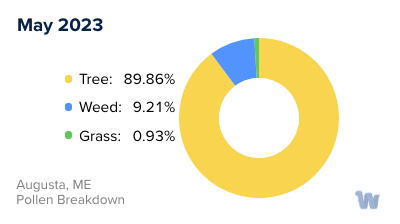
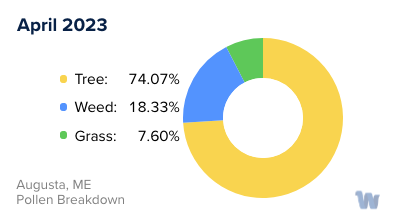
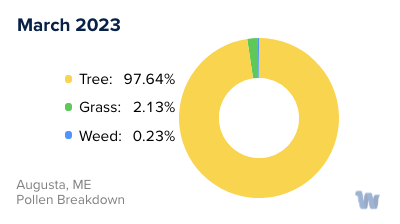
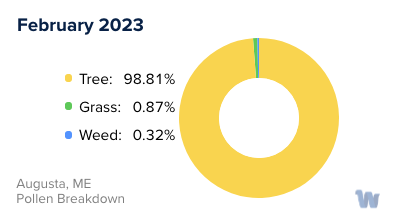
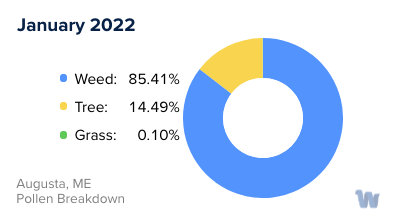
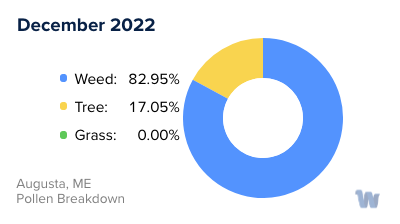
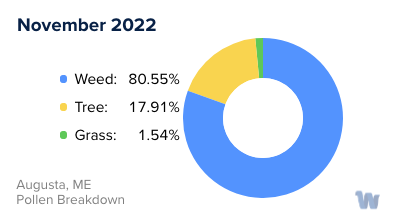
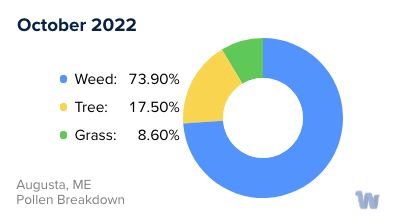
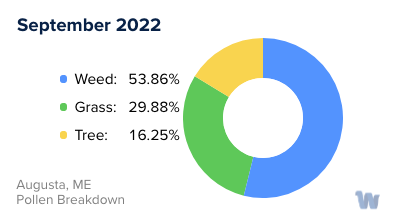
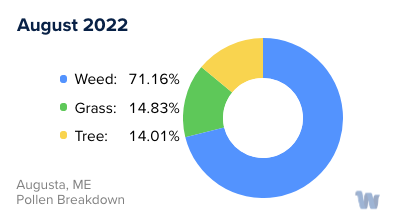
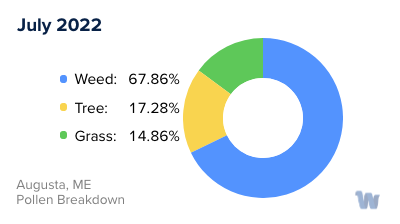
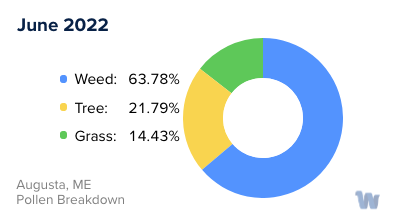
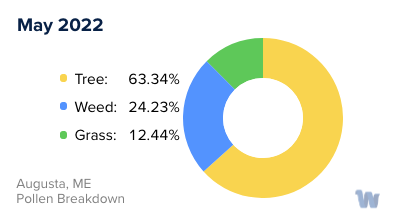
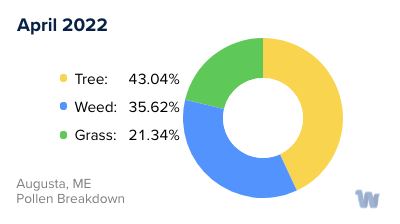
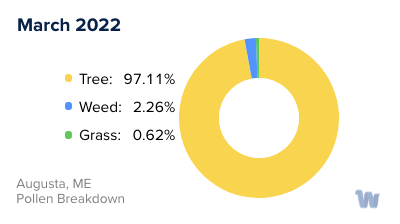
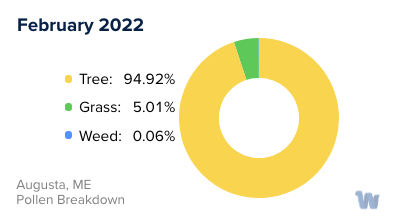
Pollen and Hay Fever in Augusta, ME
Pollen allergies, commonly referred to as hay fever, are a common health issue in Augusta, Maine, just as they are in many other parts of the world. Although the length of the allergy season in Maine is relatively typical due to the state's cold winters, there is still a significant amount of airborne pollen that can cause symptoms like sneezing, itchy eyes, and coughing.
Different types of pollen peak at various times throughout the year, causing seasonal allergies. The primary offenders include tree pollen, grass pollen, and ragweed pollen. Depending on the time of year, individuals with sensitivities to these specific types of pollen may experience more or less severe symptoms.
Tree pollen in Augusta tends to be most prevalent in the spring. During this season, the pollen from trees like oak, juniper, poplar, birch, and maple can be particularly bothersome. As the weather begins to warm up, these trees release their pollen, marking the start of the allergy season for many.
As spring transitions into summer, the primary allergenic pollen shifts from trees to grasses. During the summer months, it's grass pollen that takes center stage. The most common culprits in Maine include ryegrass, bent, timothy, orchard, and fescue grasses. These grasses generally start producing allergenic pollen in late May, with the peak occurring in June.
By the time fall rolls around, ragweed becomes the primary concern for those with pollen allergies. Ragweed pollen, along with the pollen from other weeds like amaranth, smotherweed, and sagebrush, can lead to increased allergy symptoms. The weed allergy season typically starts in late August, peaks in September, and ends after the first frost.
While winter provides a much-needed break from outdoor pollen allergies, it's important to remember that indoor allergens like mold, pet dander, and dust mites can still cause issues.
In summary, the types of pollen causing allergies in Augusta, Maine, vary throughout the year, with tree pollen being most common in the spring, grass pollen in the summer, and ragweed and other weed pollens in the fall. Understanding the seasonal variations can help individuals anticipate when their symptoms might be more severe and take appropriate precautions to minimize exposure.

